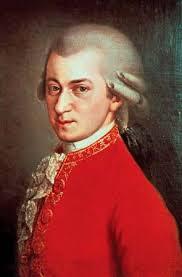You are here
Masterful Mozart
Ave Verum Corpus has been hailed through the years as one of classical music’s great masterworks, a testament to Mozart’s incredible ability to create powerfully emotional works. Perhaps the most impressive aspect of the motet is that it reaches this emotional depth over the course of just 46 measures and through incredible simplicity. It was once famously described by Artur Schnabel as “too simple for children and too difficult for adults.”
Composed in the summer of 1791, less than six months before Mozart’s death, Ave Verum Corpus was written for a friend who was a schoolteacher and choirmaster in a town near Vienna. That this friend continued to perform it regularly in his parish church suggests that he was well aware of the work’s significance. Yet in looking at the printed page, one might miss the motet’s extraordinary qualities altogether; a mere two pages in Mozart’s original hand, the vocal parts are written in a narrow range, with the melodic line and accompanying harmonies ostensibly plain and unadorned. This seeming simplicity belies the composer’s masterful use of melody, harmony and chromaticism to musically depict the meaning of the text. It is said that Mozart achieved this compositional feat in less than 48 hours. The text, a simple eight-line poem, is taken from an ancient Roman Catholic hymn. The composition may have been influenced by Mozart’s own religious beliefs, by the preference in Austria for textual clarity and brevity in church music, or by Mozart’s concern for his pregnant wife. Regardless, the result was one of beautiful purity and rich harmony.
This moving work will be brought to life by the North Shore Choral Society, a frequent Evanston Symphony collaborator, and the oldest choral organization on the North Shore. The 140-member chorus, under the baton of Dr. Julia Davids, recently concluded its 81st season, and is recognized for presenting wide-ranging repertoire. These talented musicians are sure to present this work with the great sensitivity and musicianship that it requires.

Mozart